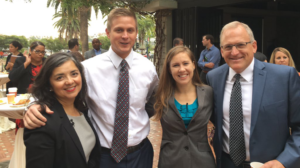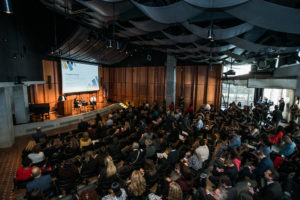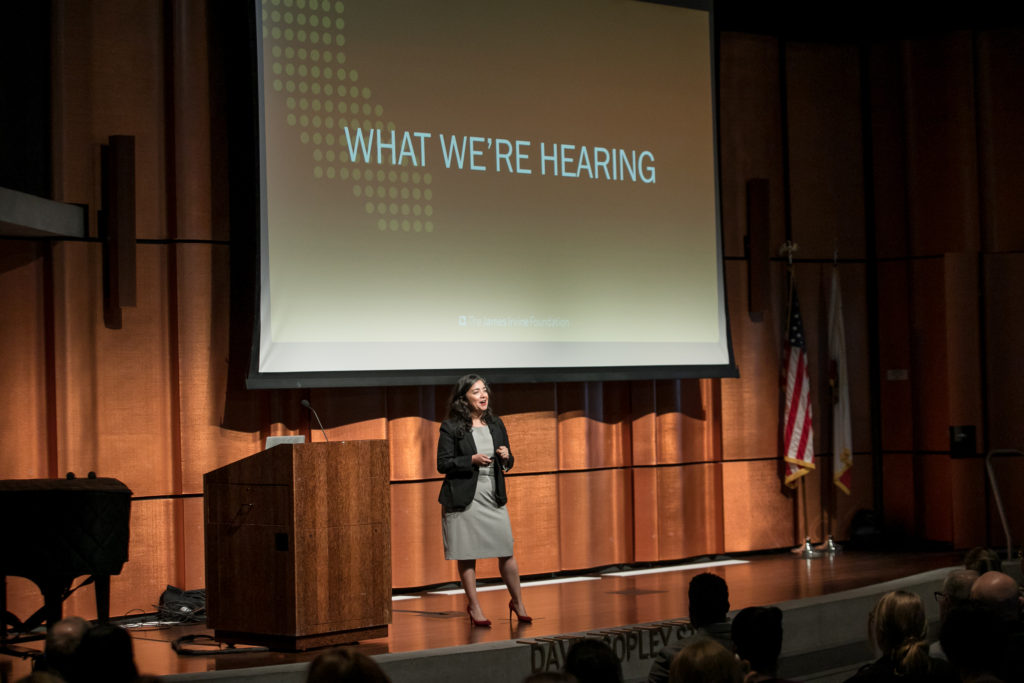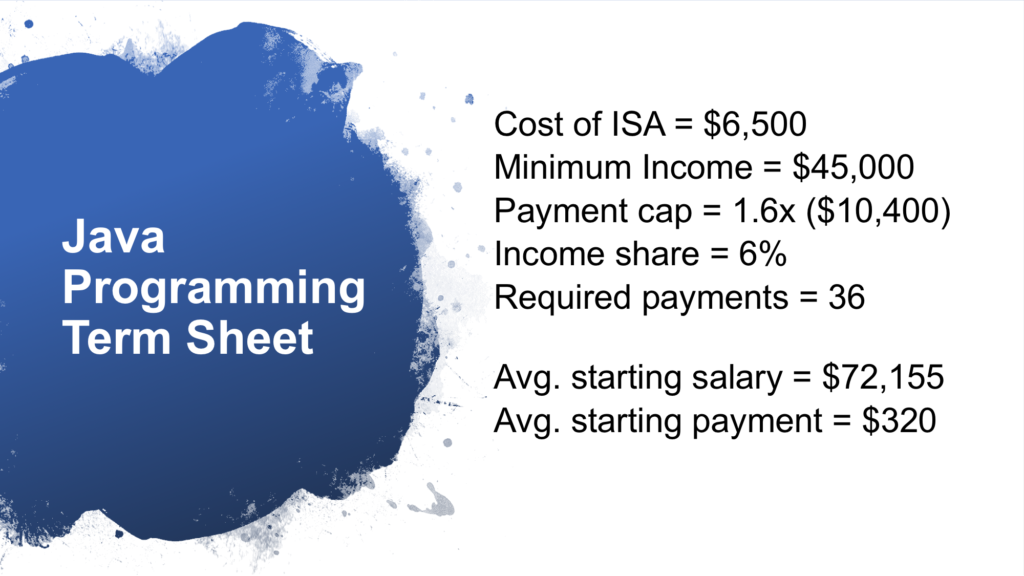Over 250 attendees heard about new ways of thinking about workforce development at the San Diego Workforce Partnership’s Workforce Frontiers Symposium on November 8.
Taking place at the Neil Morgan Auditorium at the San Diego central downtown library, the overall theme of the day is that working in silos is ineffective and ends up wasting limited resources. Spending money wisely means considering the holistic needs of our workforce while integrating systems to be more efficient.
 Here are some takeaways:
Here are some takeaways:
The key to effective solutions is listening
Elizabeth González, portfolio director of The James Irvine Foundation, talked about the foundation leading 14 listening sessions with 400 working Californians in 10 languages, asking participants about their dreams for the next generation: “What would it mean for your children to do better than you?”
The foundation heard how basic wages that used to afford someone a home or a car nowadays can’t pay for even basic necessities. Of the Californians in the listening sessions, a third of them are struggling with poverty, despite being employed.
Based on results of these sessions, The James Irvine Foundation’s shifted their focus to new initiatives, which include creating better careers—good jobs that pay family-sustaining wages and those with advancement opportunities—and fair work, which includes worker rights and protections.
Rapid employment must accompany rapid rehousing in addressing homelessness
 City of San Diego District 3 Councilmember Chris Ward talked about how rapid rehousing—light-touch programs that offer rental assistance to get people started before they take over rent payments with their own income—could be a key in mitigating the region’s homelessness, but it is necessary to bridge housing and workforce development.
City of San Diego District 3 Councilmember Chris Ward talked about how rapid rehousing—light-touch programs that offer rental assistance to get people started before they take over rent payments with their own income—could be a key in mitigating the region’s homelessness, but it is necessary to bridge housing and workforce development.
Ward suggested recruiting case managers who can be both a housing navigator and employment specialist for a pilot program coordinated by the Regional Task Force on the Homeless. He put out a call to action to employers to hire people through the pilot and said that permanent housing is the goal to end homelessness.
Ward said, “This is solvable, but we need to come together as a community.”
We must link the cost of learning to resulting value
Andy Hall, COO of the San Diego Workforce Partnership, talked about the concept of income share agreements (ISAs), where employers, philanthropy and impact investors pitch in for an individual’s education and training tuition, which is then paid back over time out of the person’s paycheck.
Some key points about ISAs:
- Minimum income threshold has to be informed by local cost of living
- Payment caps are in line with student loans
- No credit checks (“Past financial history should not affect future opportunity,” said Hall.)
- Criminal history doesn’t affect financing
- Competency, not pedigree (where one went to school)
- Built-in career services
“ISAs are inherently and philosophically progressive,” said Hall. “By their very nature, they link the cost of higher education and lifelong learning to value.”
Consider someone who has invested over $10,000 in training but didn’t get the labor market value in return. “The training provider pocketed the money, but now what?” Hall asked.
Hall shared an example of this this math adds up from a java programming program:
The San Diego Workforce Partnership is on track to launch ISAs in the spring of 2019 with UCSD Extension, while looking at expansion, diversifying, sustaining and scaling by 2023.
True system integration requires considering the whole person
Emmy-winning journalist Dita Quiñones sat down with San Diego Workforce Partnership Director of CLIMB Laura Kohn for a conversation about Quiñones’ experience as a single parent and how finding affordable quality child care has been instrumental in her being able to work after leaving an abusive relationship.
“I never thought I would be a single parent. I never thought I would be poor. I had a college education. How do I work full-time and raise a child? I bounced around from one family member’s home to another,” said Quiñones, highlighting the issue of invisible homelessness.
CLIMB is focusing on 2Gen principles so that the whole person’s needs—including things like child care—can better inform workforce development.
Accountability and flexibility are not mutually exclusive
Siloed funding—each bill signed into law funding a specific agency to carry out activities—ignores a real human being at the end of the funding pipeline.
According to Caroline Whistler, CEO and cofounder of Third Sector Capital, we need to find a way to meet the holistic needs of the community. Otherwise we are leaving a lot of money on the table.
In its efforts to break down silos, Third Sector has supported 25,000 people through $365M in public funding via outcome-based contracts, with $1 billion linked to outcomes.
Whistler shared that “One trillion dollars go out the door [from the federal government] for health care, housing, etc. every year. [Agencies and organizations] need to be held accountable where that’s going.”
Using the phrase “community up, federal down,” Whistler said we need to embrace accountability but develop innovative and flexible approaches to on-the-ground funding. She pointed out the gap between the $1 billion linked to outcomes and the $1 trillion in daily funding is the impact opportunity.
“We don’t need more prescriptions in silos,” said Whistler. “Let’s start with the people first. How do we help dollars be more accountable?”
Final thoughts
In a panel moderated by attorney and WDB Vice Chair Omar Passons, attendees heard some final thoughts from the morning’s speakers.
González said that the philanthropic community can do a better job of talking about funding risk as well as funding risk.
Whistler’s response to a question about actionable steps was: “Follow the money, talk to people behind funding stream and tell them about pilot and successes. Tell policy makers how they can write better policies. Don’t just tell the stories; tell them to where the money flows.”
Hall ended the symposium by saying, “Money and investments are energy; it is up to us to determine how to use that for good.”
We are grateful to the generous sponsors, who made it possible for us to produce this event:



